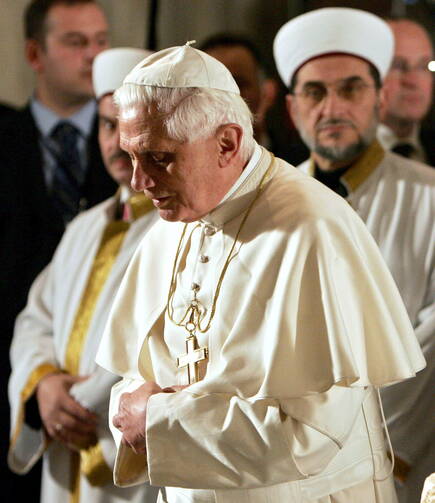Continuing yesterday's reflection on the meaning of Jesus' temptation in the desert, here is a passage from a compilation of spiritual writings by Pope Benedict XVI, titled Journey to Easter. There, the Pope Emeritus wrote of the implications for clergy:
Jesus goes into the desert to be tempted, to share in the temptations of his people and of the world, to bear our misery, to conquer the foe and so to open the way for us to the Promised Land. It seems to me that all of this belongs in a particular manner to the office of the priest: to be exposed in the front line to the temptations and necessities of any given time, to suffer the sufferings of faith at a given time with others and for others. If at a certain period philosophy, science, [and] political power create obstacles to the faith, it is to be expected that priests and religious should feel it even before lay folk.








